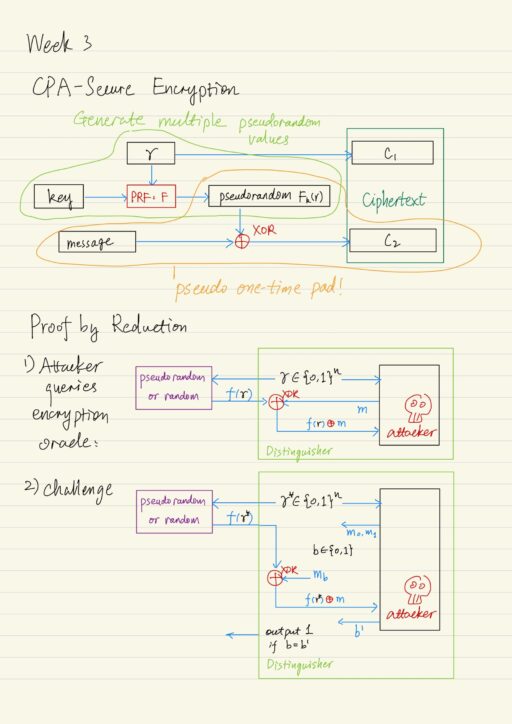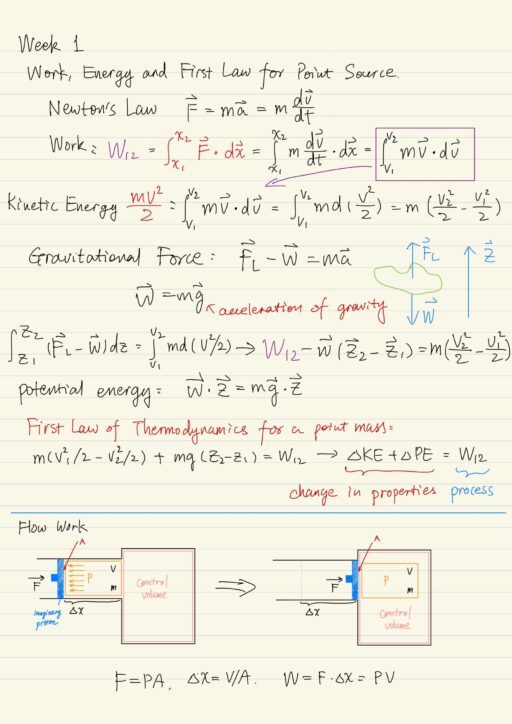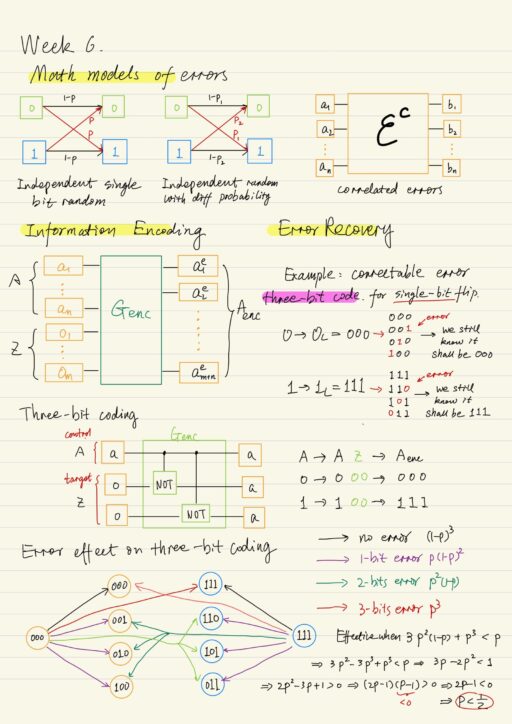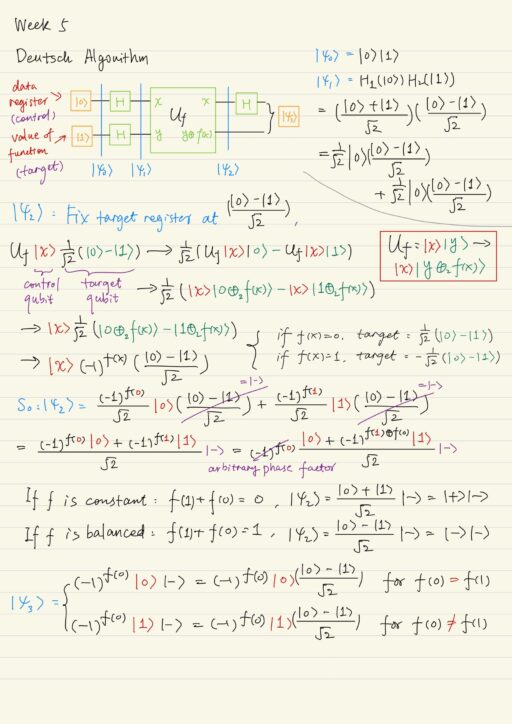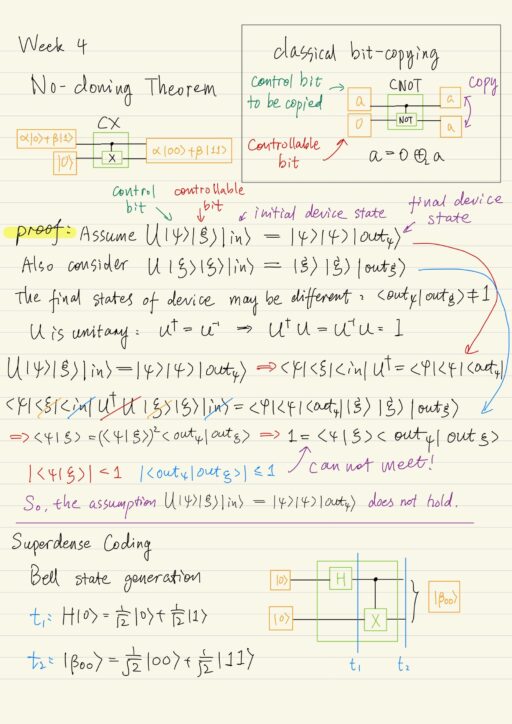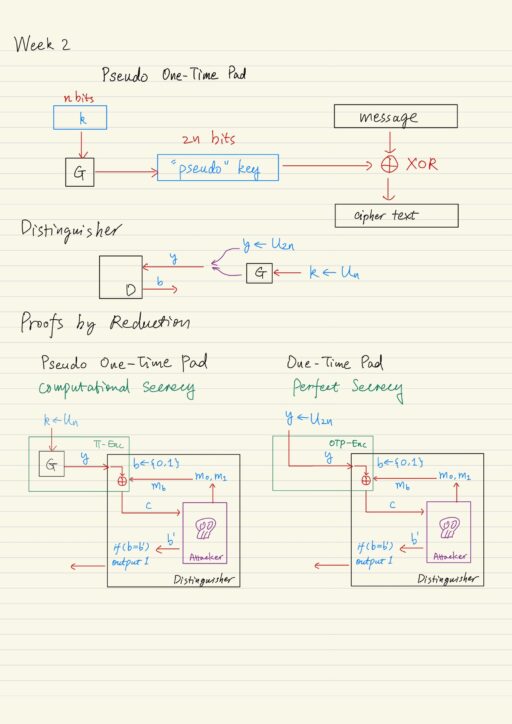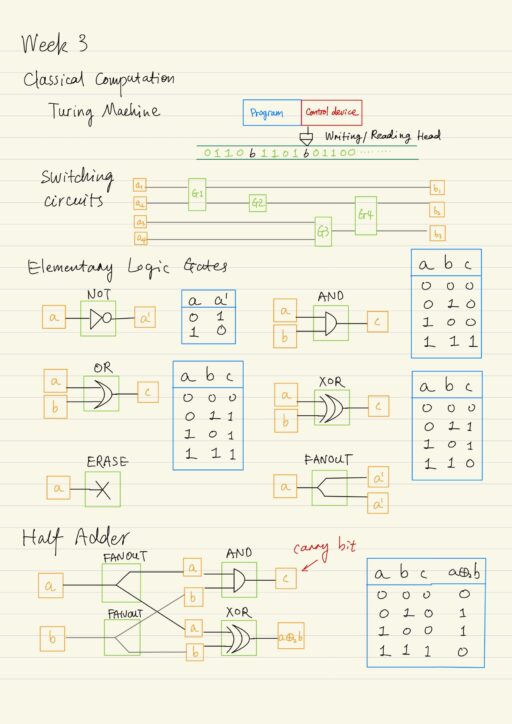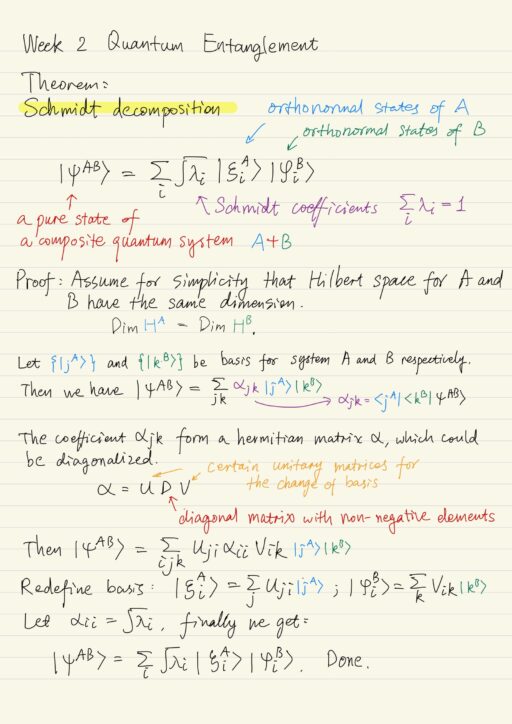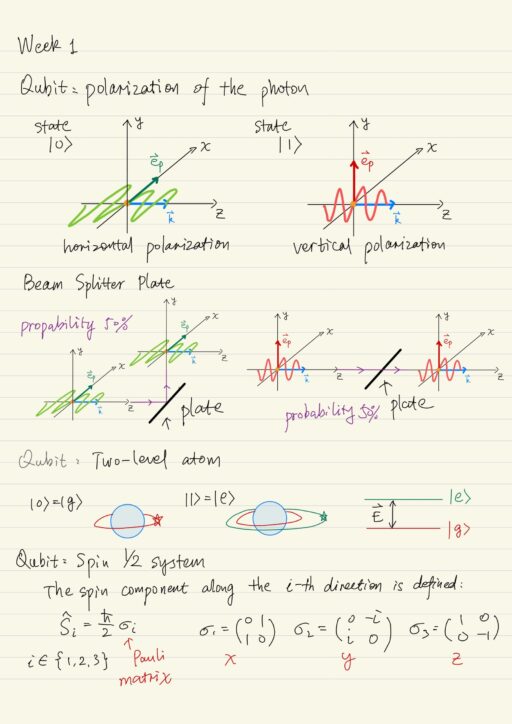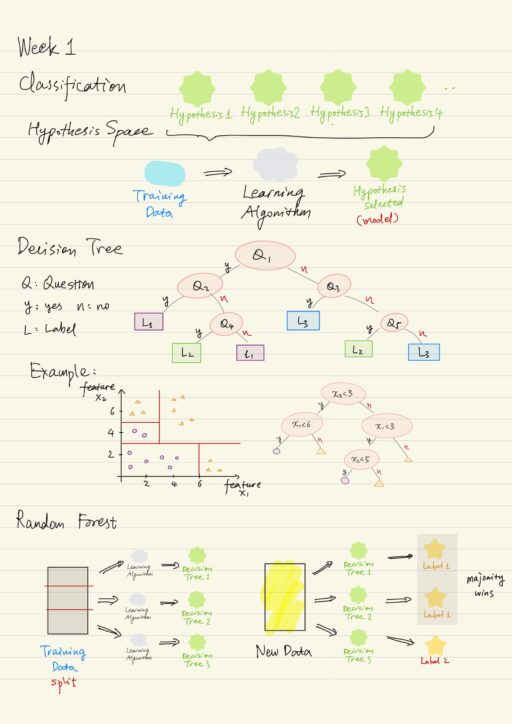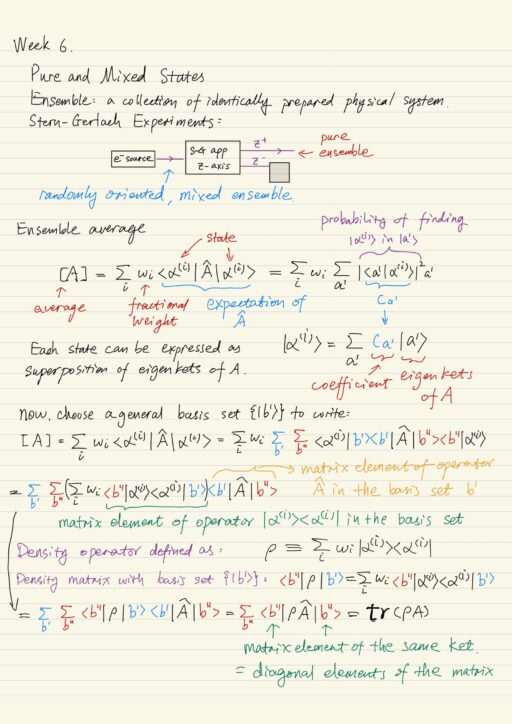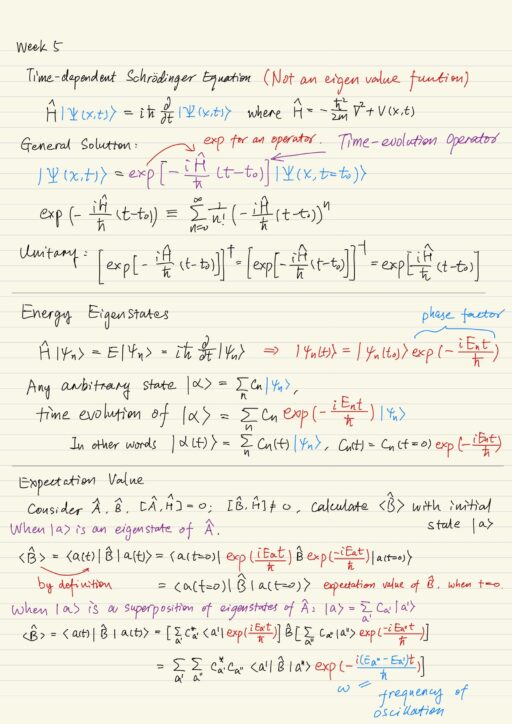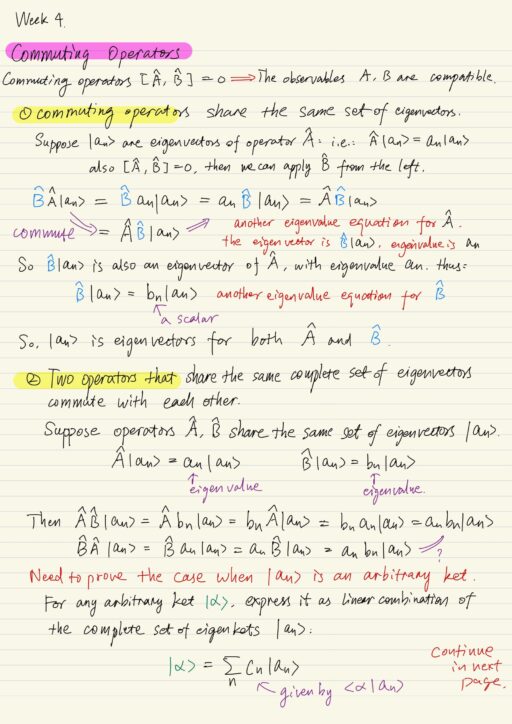Limitations of Perfect Secrecy Recall that the perfect secrecy has two limitations: The first limitation can be circumvented by relaxing the notion of perfect secrecy to computational secrecy. In particular, the pseudo one time pad scheme allows parties to securely encrypt a very long message using a short key. In order to circumvent the second…
Category: Quick Recap
Thermodynamics: Fundamental Concepts
Thermodynamics is the study of the equilibrium behavior of systems, for which motion at the microscopic level of atom and molecules is important. It involves solving problems that arise because of work, heat transfer, mass transfer interactions with a working substance of some kind. Microscopic behavior determines macroscopic properties such as PVT relations, internal energy…
Basics of Quantum Error Correction Theory
The real physical devices that implement computational models are always imperfect. It is not always possible to eliminate all of error sources in practice, however in many cases one could minimize the chances of their occurrence. Classical Error Correction Theory There are three main problems in classical error correction theory: Information channel is an important…
Quantum Algorithms
The essence of the quantum computations might not determine some particular result for a certain function, but establish the global properties of this function. For example, in the Deutsch problem, we don’t find the individual values of a function, but consider the whole superposition of the values and make conclusions about whether the function is…
Transmission of Quantum Information
Unlike the classical bit, as we already know the quantum bit is able to stay in superposition state. When measuring a qubit in superposition state, one obtains every basis state with a certain probability. The probabilistic behavior of quantum objects has its effect on the logical operations. No-cloning Theorem Classical element FANOUT (bit-copying) could be…
Computational Secrecy, Pseudo-randomness, and Proof of Security
Limitations of the One-Time Pad The one-time pad encryption scheme achieves perfect secrecy, but nowadays it is not often used because of several limitations: The key is as long as the message. Only secure if each key is used to encrypt a single message. Actually these limitations are not specific to the one-time pad scheme,…
Quantum vs. Classical Logical Operations
Nowadays, there are a large number of various computers. Despite the differences in physical implementations and the purposes of these devices, from the point of view on the computation theory, the operation principle of any of them can be described by Turing “machine”, which is formally called Church-Turing thesis. The main feature and advantage of…
Quantum Entanglement
Quantum entanglement acts as a cornerstone for all quantum computations. If one physical system consists of two or more qubits and its state vector |ζ⟩ can be represented as tensor product |ζ⟩ = |ζ1⟩ ⨂ |ζ2⟩, where |ζ1⟩ and |ζ2⟩ describe states of each qubit. Then the state |ζ⟩ is called separable; otherwise it is…
Introduction to Classical Cryptography
In dictionary, cryptography is defined as the art of writing or solving codes. Historically, cryptography focused exclusively on codes (or private-key encryption schemes) ensuring secret communication between two parties who share secret in advance. Modern cryptography however has a much broader scope like data integrity, user authentication, protocols, etc. Furthermore cryptography also considers the public-key…
Statistical Aspects of Quantum Mechanics
As of now, it is still unclear whether it is possible to create a so-called quantum computer, a special device which will be able to perform a special set of algorithms on the application of quantum mechanical effects. Qubit Implementation A qubit is the smallest element for storing and processing information in a quantum computer….
Classification: Decision Trees and k-Nearest Neighbours
Classification Basics Machine learning uses learning data and learning algorithms to produce a model (or Question Answering Machine, QuAM), which is used to make prediction on unseen data. Classifier is a specific kind of model, which is built by using the supervised learning technique called classification. Scientific method could be broken down into several steps:…
Quantum Mechanics: Ensembles and Identical Particles
Pure and Mixed Ensemble / State In quantum mechanics, we only talk about average or expectation value for a physically observable quantity by taking multiple measurements on ensemble and taking average. Ensemble means a collection of identically prepared physical system. The Stern-Gerlach experiment is an example of producing an ensemble – a collection of electrons…
Time Evolution of Quantum States
Time-dependent Schrödinger Equation Time-dependent Schrödinger equations is not an eigenvalue equation, but allowing us to predict the state at t, given the initial condition at t0. where Hamiltonian H^ = -h2/2m ∇2 + V(x, t). The potential energy V(x, t) in general depends on time, however time-independent potential V(x) covers a large number of important…
Quantum Mechanics: Uncertainty Principle and Change of Basis
Commuting Operators Two observables A and B are considered ‘compatible’ if the corresponding operators commute with each other, i.e.: [A^, B^] = 0, where [ ] is commutator bracket, and A^, B^ are operators representing the physical observables A and B. Commuting operators have two very important properties: Commuting operators share the same set of…
Heuristic Algorithms: A Case Study
The objectives for any research is that we want to build a mathematical model to formulate the given problem. The heart of operations research is a mathematical model. That model is going to precisely describe the problem, but the model may be too complicated to get an optimal solution. We need heuristic algorithms, and the model could be…
